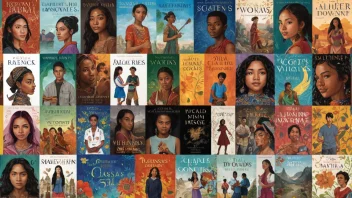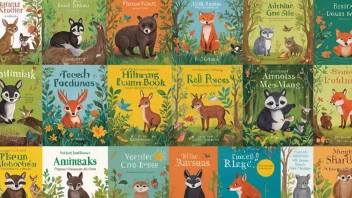Young Adult (YA) fiction has emerged as a powerful force in contemporary literature, influencing not only young readers but also the broader landscape of pop culture. What began as a niche category has evolved into a major genre that touches on themes relevant to adolescence, identity, and the complexities of growing up. The impact of YA literature is evident in various media, from films and television shows to fashion and music, reflecting the genre's ability to resonate with audiences across different age groups.
One of the most significant ways YA fiction has shaped pop culture is through its adaptations. Bestselling novels like 'The Hunger Games,' 'Twilight,' and 'The Fault in Our Stars' have been transformed into blockbuster films, drawing millions of viewers and creating cultural phenomena. These adaptations often spark conversations about the themes presented in the books, such as love, sacrifice, and the fight against oppression. Furthermore, they introduce the stories to a wider audience, encouraging non-readers to explore the original novels and, in turn, boosting the popularity of YA literature.
Additionally, YA fiction has paved the way for a more diverse representation in pop culture. Authors like Angie Thomas, with her groundbreaking novel 'The Hate U Give,' tackle pressing social issues such as race, identity, and police brutality, inviting readers to engage with important topics. This shift towards inclusivity has not only influenced literature but has also spilled over into film, television, and even fashion, where characters' styles from YA novels often inspire trends. The representation of LGBTQ+ characters and other marginalized groups in YA books has also garnered attention, leading to a broader acceptance of diverse narratives in mainstream media.
Moreover, the themes explored in YA fiction often reflect the struggles and realities faced by today’s youth, making these stories relatable and relevant. The exploration of mental health issues, family dynamics, and the quest for identity resonates deeply with young audiences, allowing them to find solace in characters whose experiences mirror their own. This connection fosters a sense of community among readers who share their favorite stories and insights, further embedding YA literature into the fabric of pop culture.
Social media plays a crucial role in the prominence of YA fiction within pop culture. Platforms like TikTok and Instagram have given rise to book influencers and trends, where readers share their thoughts and recommendations, creating a vibrant online community. The hashtag #BookTok has seen thousands of young readers engaging with YA content, leading to increased visibility for titles that might have otherwise gone unnoticed. This dynamic exchange of ideas and recommendations cultivates a culture where reading becomes a shared experience, breaking down barriers between generations.
In conclusion, the influence of YA fiction on pop culture is profound and multifaceted. Through adaptations, increased representation, relatable themes, and the power of social media, YA literature has solidified its place in the cultural zeitgeist. As new voices emerge and stories continue to evolve, the impact of YA fiction will undoubtedly shape the future of literature and pop culture, inspiring generations to come to embrace the joy of reading.
How YA Fiction Shapes Today's Pop Culture
Explore how Young Adult fiction has become a significant force in shaping contemporary pop culture through its themes, adaptations, and representation.






